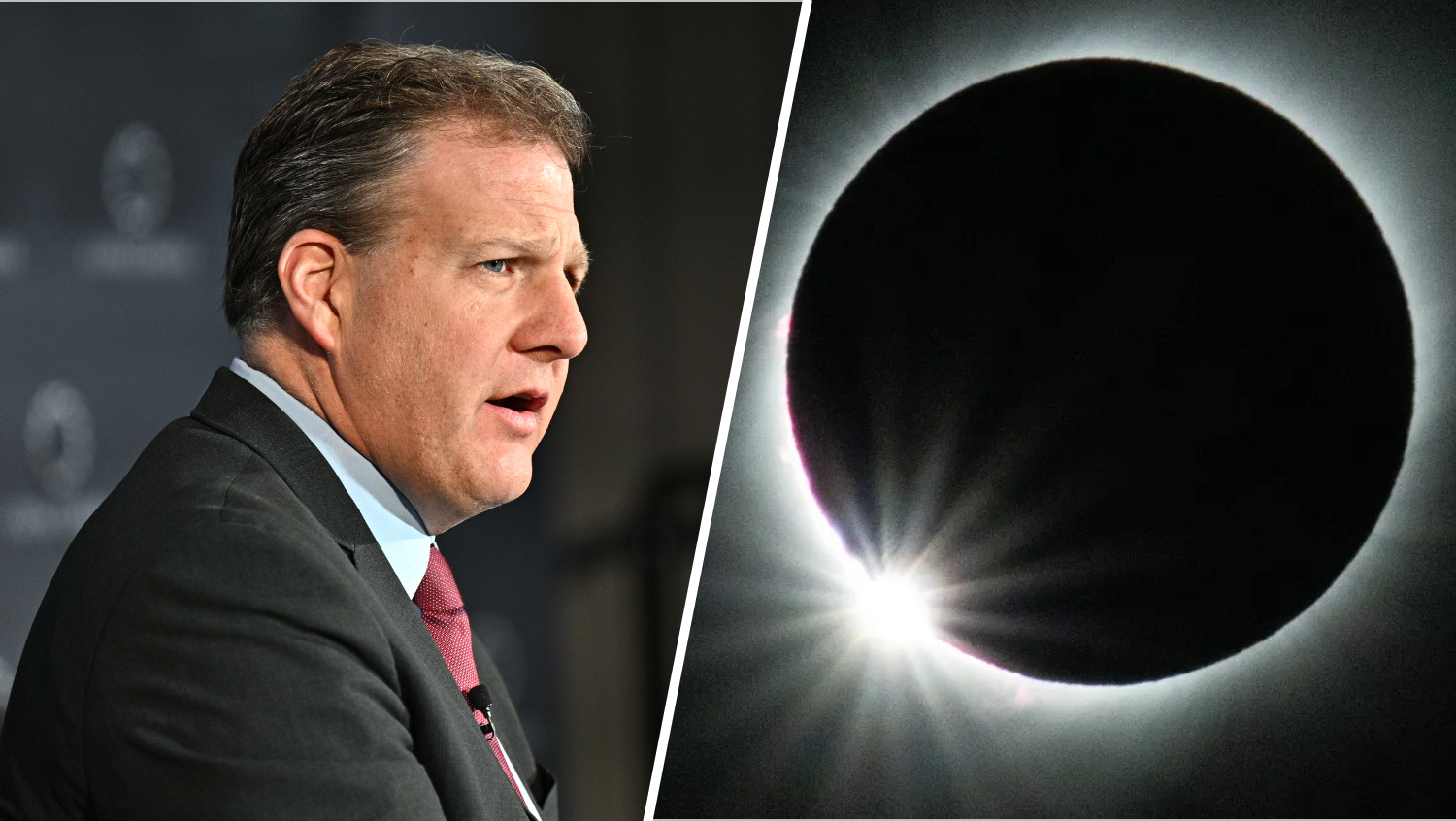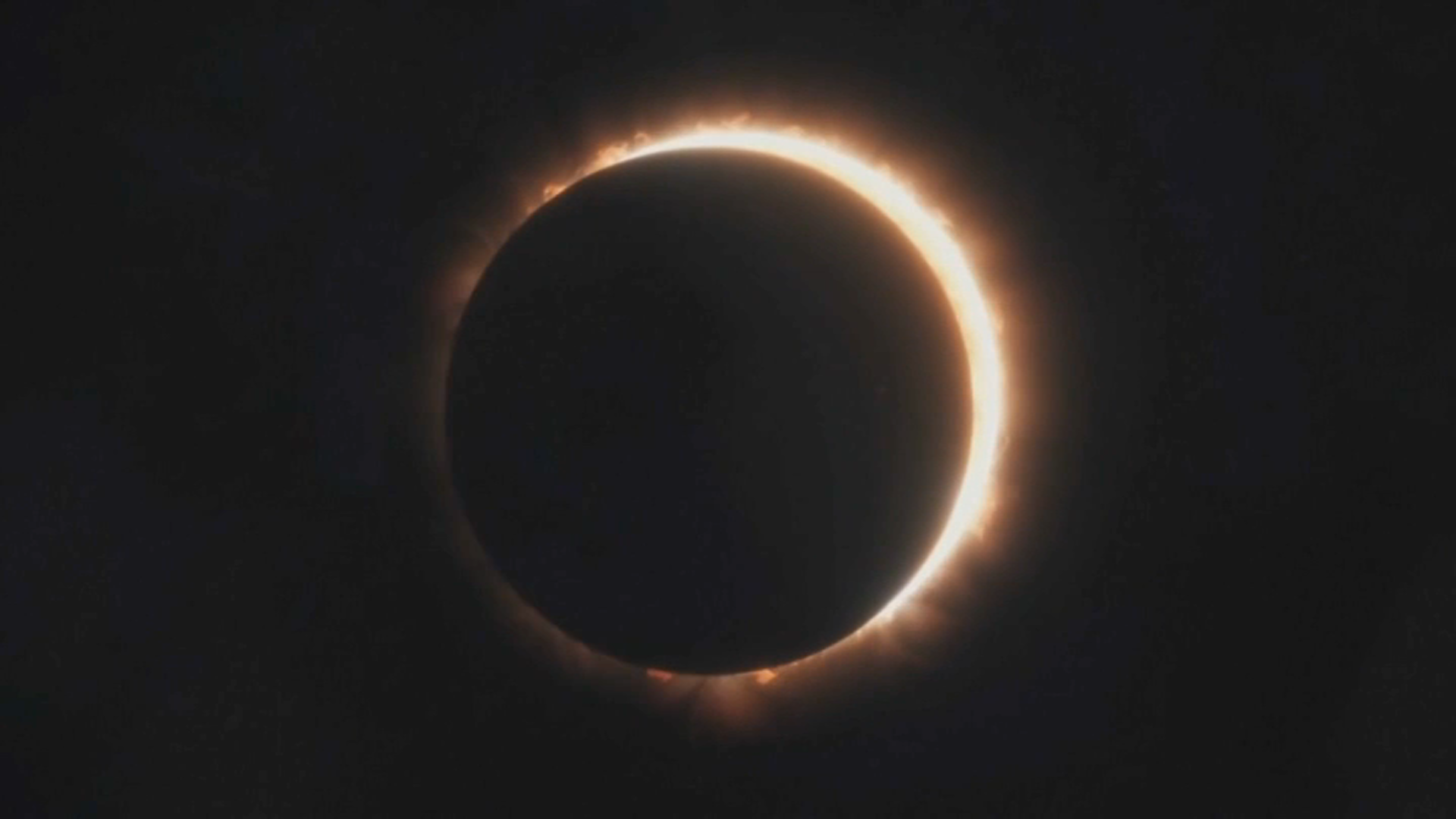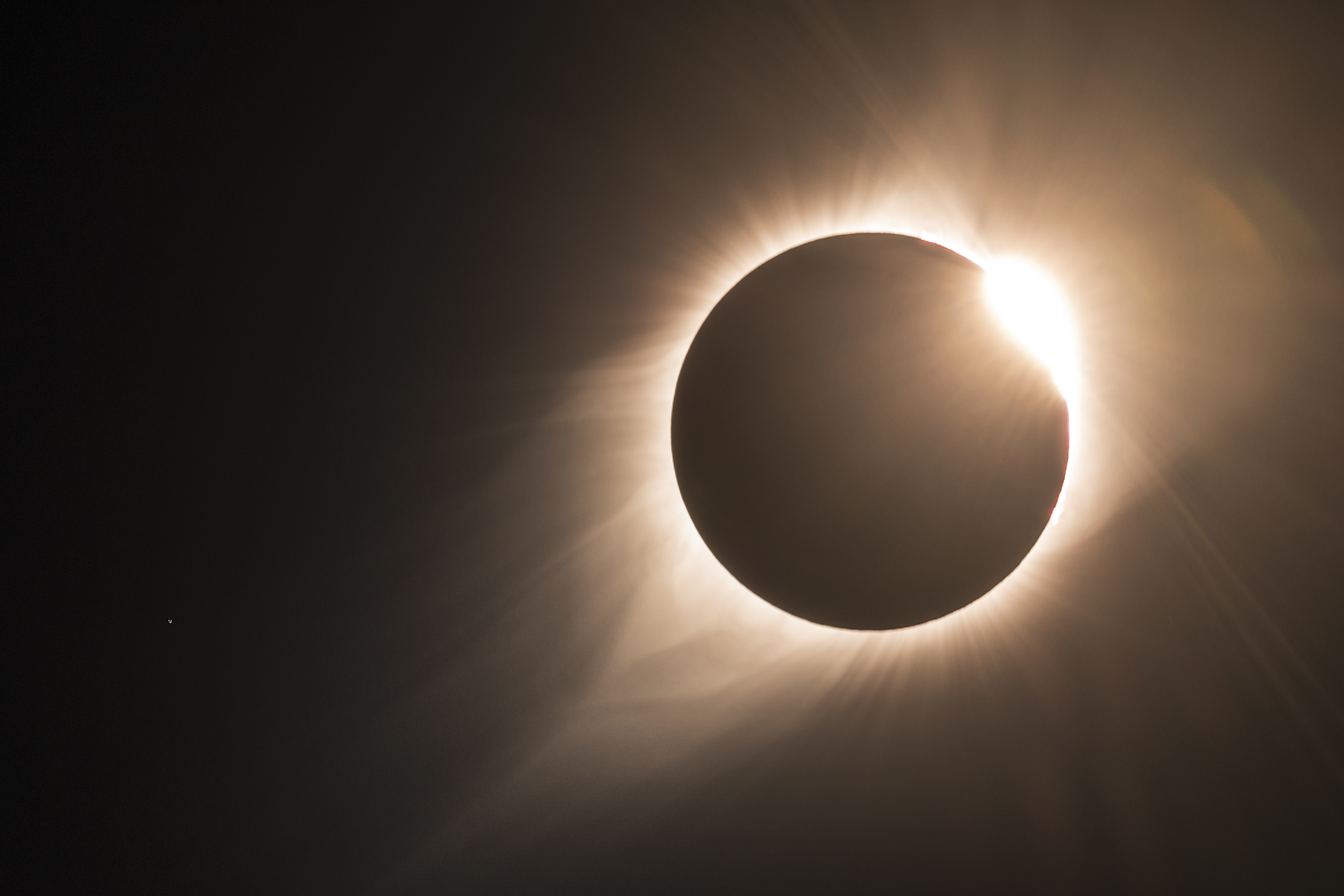The great gig in the sky is causing a great deal of traffic on the roads
The path of the total solar eclipse cuts across more than a dozen states including Vermont, New Hampshire, and Maine. About 85% of the eclipse will be visible in Massachusetts. The Department of Conservation and Recreation is offering free programming and giving out protective glasses at eight Massachusetts state parks.
AAA Northeast is expecting traffic delays similar to what you’d see on a holiday weekend. State officials are expecting up to 20,000 people will head to the most northern part of New Hampshire, up to 40,000 people will visit Maine and around 160,000 are going to Vermont, according to the state’s emergency management agency.
Get Boston local news, weather forecasts, lifestyle and entertainment stories to your inbox. Sign up for NBC Boston’s newsletters.
New Hampshire State Police have been working with its partners for months to prepare for Monday's eclipse.
In a video posted to social media Sunday, trooper Bryan Griffin offered the following safety tips to make sure Monday's eclipse is enjoyable and safe for all
"Consider bringing extra food, water, medications, gas, a cell phone charger, cold weather gear and emergency supplies. Additionally, eclipse viewers should only park in designated areas and choose a viewing location ahead of time. Drivers should not plan to pull over on the side of interstates or roads to view the eclipse, as doing so can put them at risk of getting hit by other vehicles or being stuck in mud or snow. Drivers in distress or who become stranded, should anticipate potentially delayed response times. Tow trucks could also face major delays in getting to stranded vehicles. And lastly, anyone who experiences or witnesses an emergency situation should report it to 911 immediately."
State leaders have already warned people to be patient and plan ahead as the traffic is expected to be very heavy. In fact, the slogan surrounding the region has been "come early, stay late."
“One thing we are telling everyone to pack is patience. Everybody please be patient, there will a lot of traffic going up north and potentially even bigger traffic coming back south.” said New Hampshire Gov. Chris Sununu.
“Be patient, be ready and make sure you have what you need in your vehicle – snacks, clothing gas,” added Maine Gov. Janet Mills.
A number of people hit the roads Sunday to avoid the headache on Monday. Among those was David and Chris Thiebeault. They say it's not uncommon for them to head to Vermont in their camper, but this time, it will be a unique father-son trip.
"It’s just probably the last one I'll see in my lifetime. Figure a full eclipse and do some skiing," Dave Thiebeault said.
"I took the day off from work tomorrow, so I figured I'd go see something that I'll only see once in my life," Chris Thiebeault said.
Vermont's tourism commissioner has warned, "Our back roads, many of them are dirt roads, this is what we affectionately call mud season so it’s not a good idea to leave the interstate even if traffic is backed up,” Vermont's tourism commissioner said.
It's not just patience on the road that people need to pack -- but also protective eyewear. Ophthalmologists are reminding everyone how critical it is to have the correct eyewear on Monday.
"Keep in mind that using just ordinary sunglasses even very dark ones or homemade filters are not safe for looking at the sun," Dr. Gabriel Luna, a UMass Memorial Health ophthalmologist, said. "The only time that you can look at the sun without a solar viewer, or proper eclipse glasses, is during a total eclipse. And this is a very brief moment when the moon completely covers the sun's bright face, and it suddenly gets dark then you can remove your solar filter to watch this unique experience."
It's important to make sure you buy eclipse glasses from a reputable vendor. They need to have the ISO number 12312-2 -- that means they are safe to use.
If you don’t have glasses, you can poke a hole through a piece of cardstock.
Another safety tip -- don't view the eclipse through your phone camera.
Luna says the only time anyone can take off their glasses is at the peak of the eclipse in the path of totality, which is not happening in Massachusetts.
“It can go from just having a temporary blindness episode to permanent blindness and the damage is mainly to the retina, which is the area that controls the vision. It’s almost like the brain of the eye that allows you to see.” added Dr. Luna.
The total solar eclipse will be visible along a “path of totality” that measures more than 100 miles wide and extends across the continent. Along that path, which travels through 15 states including Vermont, New Hampshire and Maine, the moon will fully obscure the sun, causing afternoon skies to darken for a few minutes.
Here's when and where the solar eclipse will be crossing the U.S.




